FOR IMMEDIATE RELEASE: December 29, 2011
Contacts:
Janette Brimmer, Earthjustice, 206-343-7340 ext. 1029
Dvija Michael Bertish, Rosemere Neighborhood Association, 360-281-4747
Brett VandenHeuvel, Columbia Riverkeeper, 503-348-2436
Federal Judge Suspends County’s Inadequate
Polluted Runoff Standards
Injunction requires Clark County to shelve fish-killing loopholes
in its development standards
Tacoma, WA.—A Washington state county’s controversial development standards appear to violate federal laws to protect clean water, according to a preliminary ruling by a U.S. District Court Judge.
The decision, issued December 28 by U.S. District Court Judge Ronald B. Leighton, means Clark County must comply with federal clean water laws, like other cities and counties in the state, to protect rivers, streams and salmon threatened with extinction. The ruling applies to development projects permitted or approved by the county on or after the court’s order while a related state court appeal is pending.
Rosemere Neighborhood Association, Columbia Riverkeeper, and the Northwest Environmental Defense Center, represented by Earthjustice, challenged Clark County’s failure to protect threatened salmon.
“Many cities and counties in our state are working hard to clean up polluted waterways and now Clark County must finally do the same,” said Janette Brimmer, an Earthjustice attorney who is representing the groups. “The ruling recognizes that everyone needs to do their share to protect our precious streams, rivers and salmon and that Clark County, like everyone else, must follow the law.”
Last year, the neighborhood and conservation groups prevailed before the state Pollution Control Hearings Board, which hears appeals of state environmental regulations and permits. In January of this year, the Board rejected the county’s “alternative” plan for managing polluted stormwater runoff finding that it violated the County’s stormwater permit and was too weak to prevent significant harm to already stressed rivers and streams.
The County’s inadequate “alternative” plan was developed in a compromise with the Department of Ecology (Ecology), which oversees the federal Clean Water Act. Stormwater runoff a major source of water pollution because it is a stew of toxic metals, oil, grease, pesticides, herbicides, bacteria that runs off pavement into streams and rivers.
Clark County refused to implement the required development runoff standards. After finding Clark County in violation of its stormwater permit, the Department of Ecology yielded to county pressure and agreed to allow Clark County to retain inadequate stormwater standards for development in exchange for a promise to implement taxpayer-funded mitigation projects. The controversial approach did not protect streams polluted by development runoff and shifted the burden of protecting clean water from developers to local taxpayers.
As noted by the federal court, the Board had found the program to be illegal in several important respects. Specifically, the Clark County program:
• Is not based on any science and fails to protect water quality and salmon.
• Unlawfully exempts development projects that “vested” prior to April of 2010.
• Unlawfully allows Clark County to shift resources from its existing retrofit program to mitigate for new development.
• Unlawfully fails to require “low impact development” at new development and mitigation sites.
Clark County appealed the Board decision in state court and refused to comply with the Board’s decision, forcing clean water advocates to take the matter to the U.S. District Court for the Western District of Washington to enforce the Clean Water Act.
Judge Leighton’s preliminary ruling agreed that the clean water advocacy groups have demonstrated a likelihood of success on their claims that Clark County’s inadequate development standards for polluted runoff violate the Clean Water Act and that irreparable harm to the environment is the result.
The judge therefore imposed an obligation on the County to follow the original requirements of its stormwater permit; the same requirements that over 100 other cities and counties in Western Washington have been complying with since 2008.
Judge Leighton’s order states:
“Environmental injury, by its nature, is often permanent or at least of long duration” (page 11)
“The public interest favors compliance with environmental laws” (page 12) and the Clean Water Act requires strict enforcement to effectuate its purpose of protecting sensitive aquatic environments” (id)
“…More than 100 cities and counties in Western Washington are subject to the Phase I [stormwater] Permit’s default flow control standard and are apparently able to comply with its requirements.” (id)
“Our association applauds the judge’s order because it reinforces that we need to do everything we can to stop undermining water quality,” said Dvija Michael Bertish of the Rosemere Neighborhood Association. “Clark County has ignored the public’s concerns about stormwater violations,and we hope the court’s decision will bring the County back into
compliance with the law in order to protect the water and endangered species.”
“Columbia River salmon and our communities need clean water,” stated Brett VandenHeuvel, Executive Director of Columbia Riverkeeper. “Clark County must take steps to reduce pollution.”
The clean water groups include Rosemere Neighborhood Association, Columbia Riverkeeper, and the Northwest Environmental Defense Center. They are represented by attorneys Janette Brimmer and Jan Hasselman of Earthjustice.
A copy of the ruling is available here: SJOrderGrantingPreliminaryInjunction12-28-11.pdf
To view this Press Release in pdf format click here: For Immediate Release:Federal Judge Suspends County’s Inadequate Polluted Runoff Standards.pdf
##
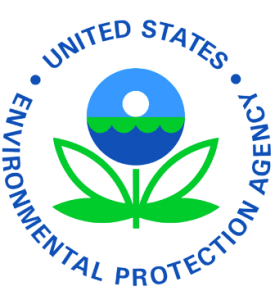 Rosemere Neighborhood Association congratulates our environmental partners on their successful Clean Water Act lawsuit against BNSF Railway coal train pollution!
Rosemere Neighborhood Association congratulates our environmental partners on their successful Clean Water Act lawsuit against BNSF Railway coal train pollution!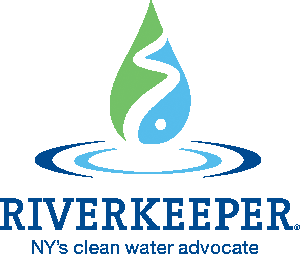
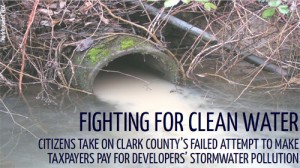
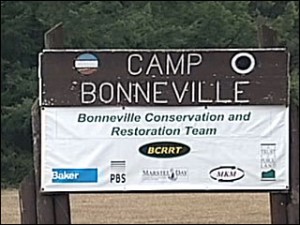
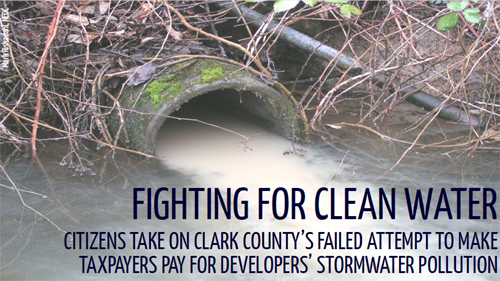


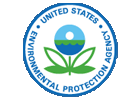







![Washington State Water Quality Assessment [303(d)] Washington State Department of Ecology](http://www.rosemerena.org/home/wp-content/uploads/2009/03/ecy_logo.gif)

